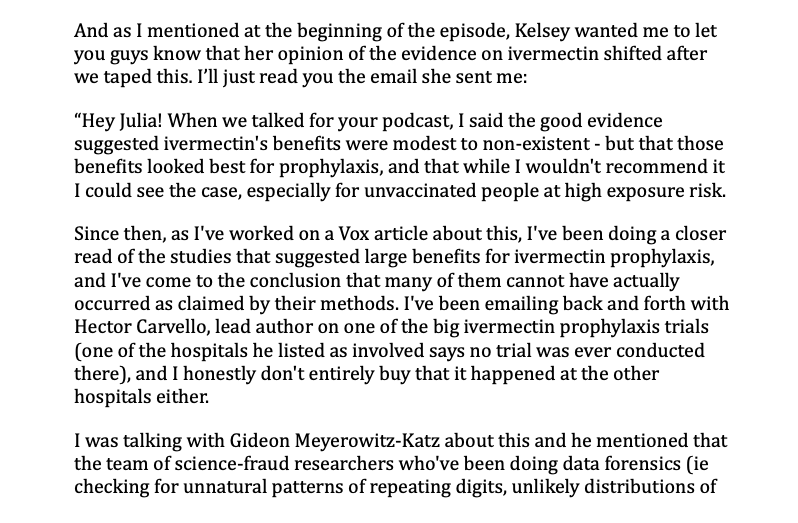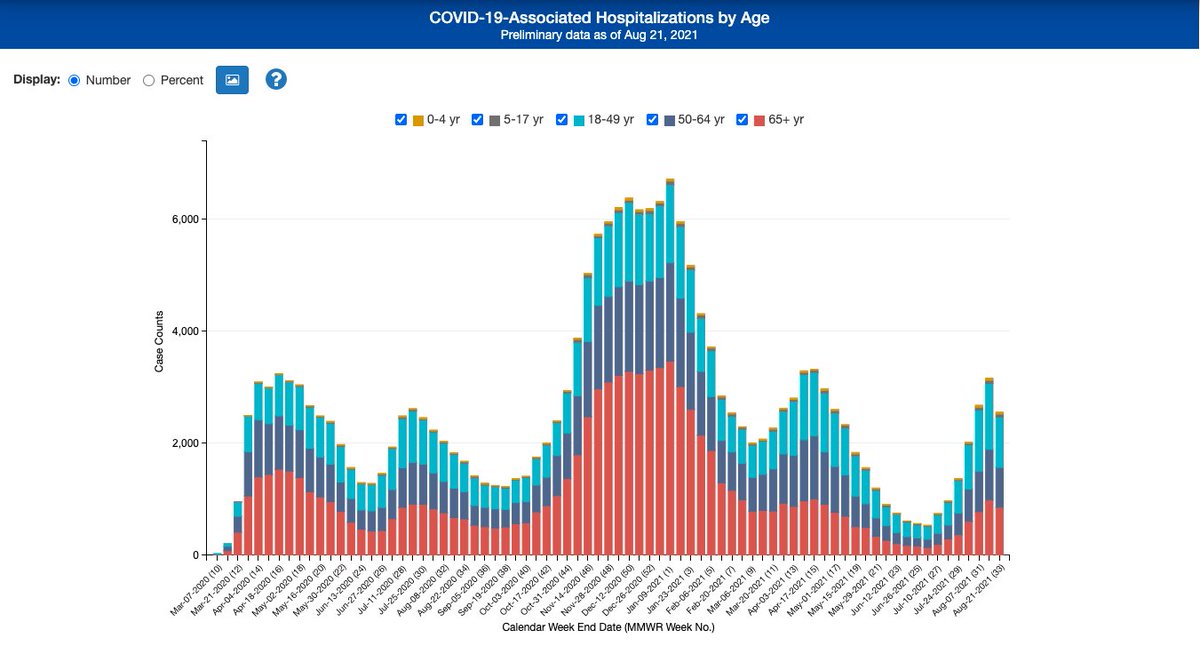
Yesterday's @Rspodcast with @juliagalef & @KelseyTuoc on COVID-19 covered ivermectin, and included a pretty shocking final twist. Thread:
@Rspodcast @juliagalef @KelseyTuoc I trust @KelseyTuoc. I consider her a friend. She was one of the first journalists to suggest the concern about the pandemic was reasonable, and early on she wrote a thread admonishing herself for expressing more concern amongst friends than she was willing to publish publicly.
Reviewing the literature, Kelsey didn't find the evidence for ivermectin for critical condition COVID patients convincing at all, but found that it may have a small effect on early mitigation of disease severity, and said it looked most promising as prophylaxis (with caveats).
Kelsey still didn't personally think the cost-benefit analysis panned out positively for most people, but she could easily understand — for example — a doctor without vaccine access taking ivermectin prophylactically.
Kelsey and Julia discussed the surprisingly strong media immune response to ivermectin, agreeing that it seemed disproportionate to the risk-benefit status of ivermectin. Messing with your gut biome might not be ideal, but if you're taking human doses, you're going to be fine.
After taping the episode, Kelsey wrote Julia with a pretty stunning update. Screenshots from the episode transcript. 



If this is true, it casts serious doubt on ivermectin's strongest use case: as prophylaxis. Depending on the extent of the fraud that can be proven or reasonably argued, it could also be very bad news for people hoping to use ivermectin for early treatment.
It'll be interesting to see what happens when these accusations and supporting evidence are published. I don't know how that will pan out, but for the time being, I agree with Kelsey: the somewhat tenuous evidence for ivermectin should probably now be considered *too* tenuous.
-On the object level, this isn't something to celebrate. In an ideal world, there would be lots of ways to prevent and treat COVID. Regardless, we can and should celebrate the people working to figure out what's going on — always. Always, always.
Because the discourse is dominated by pro-vaccine or anti-vaccine zealotry, treatment has taken a backseat, and we're really not talking much about what can help people after exposure or symptom onset. And for highly vulnerable people, vaccinated or not, that's crucial.
As Kelsey noted in the podcast, fluvoxamine — another repurposed drug — has recent shown arguably greater promise in methodologically-sound clinical trials than ivermectin.
Indeed, early results from the Together Trial, a massive-scale rigorous study on early treatment protocols, show lackluster efficacy for ivermectin but considerable improvement in patients given fluvoxamine. Hope lives on for an effective early treatment for COVID!
As a general rule: wish each other well. Be epistemically humble. Hope, but verify. Better treatments, and even better vaccines, are likely coming. Do what you can to protect yourself today, including getting vaccinated if medically appropriate.
Here's a link to the podcast. I definitely recommend listening! rationallyspeakingpodcast.org/258-how-to-rea…
In the interest of transparency: I have ivermectin on hand, and barring an alternative I will probably take it if I start to get sick. As it stands, the standard protocol for early stage COVID is "go home, come back if you can't breathe."
Re: vaccine — personally, my main concern has been fertility. New studies have been launched to study widely-reported disturbances in menstruation, but are unlikely to produce results soon. Preliminary pregnancy data looks pretty good. Broader fertility data unlikely to come soon
Women in my position have to make the vaccination decision based on what we know and what we're likely to know over a reasonable time horizon. I don't judge anyone for the decision they make.
• • •
Missing some Tweet in this thread? You can try to
force a refresh







